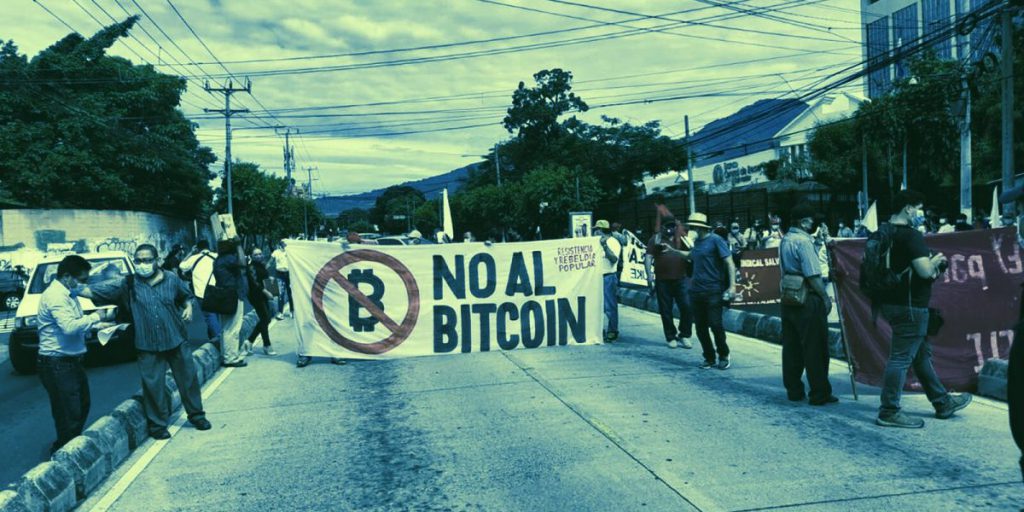- Three US Senators have proposed a bill looking into El Salvador Bitcoin law, its alleged risks, and how to reduce the country’s use of the dollar.
- Salvadoran president Nayib Bukele has fired back at the lawmakers, saying his country is not a US colony.
A trio of Bitcoin-wary US senators has put forward a bill seeking to look into El Salvador Bitcoin law. If passed, the legislation would give the State Department a 60-day window to design and report a plan on how to mitigate risks allegedly posed by El Salvador’s adoption of Bitcoin as legal tender.
Per an official press release, the “Accountability for Cryptocurrency in El Salvador (ACES) Act” was proposed by Senate Foreign Relations Committee ranking member Jim Risch, committee chairman Bob Menendez, and Bill Cassidy. The senators believe that the Bitcoin law has “potential risks to the US financial system” and that it “raises significant concerns.” The latter, according to senator Risch, includes the economic stability and financial integrity of a vulnerable US trading partner in Central America.
For these reasons, the report seeks to investigate El Salvador’s “bilateral economic and commercial relationship with the United States and the potential for reduced use by El Salvador of the US dollar.”
US Senators: Investigate El Salvador Bitcoin law
Additionally, Risch says El Salvador’s Bitcoin policy has the potential to “weaken US sanctions.” Averting the effect of US sanctions was one of the motivations behind the country’s Bitcoin move. The senator also noted that the Salvadoran legislation could empower “malign actors like China and organized criminal organizations.”
Over time, the narrative of cryptocurrencies promoting crime has been shared extensively, more so by anti-Bitcoin and generally anti-crypto parties. Among them are US Treasury Secretary Janet Yellen and the famed billionaire investor, Charlie Munger.
However, a 2021 report by crypto intelligence firm Chainalysis rules out the story as a misconception. The report says criminal activity accounted for just 2.1 percent of the total crypto transaction volume ($21.4B) in 2019. The criminal share of all cryptocurrency activity further fell to 0.34 percent of total transactions ($10B) in 2020, and less than 1 percent in 2021.
A separate report by the UN backs these findings: 2-5 percent of global GDP ($1.6-4T) annually is connected to money laundering and other illicit activities. This means the fiat share of crime is much larger than that of cryptocurrencies.
President Bukele: We are not your colony
In reiteration, El Salvador President Nayib Bukele called the senators “boomers” – a generation criticized for being “out of touch” with new developments and innovations. In further defense of his country, he stated quite assertively:
We are not your colony, your back yard, or your front yard. Stay out of our internal affairs.
Bukele’s adamance to stick to the Bitcoin law has been shown severally, including the recent turndown of the IMF’s recommendation to abandon the legislation.
Ironically, a US senator from Arizona pitched a bill in January to make Bitcoin legal tender in the state. The bill defies the country’s constitution which forbids the creation of another legal tender besides the US dollar.


